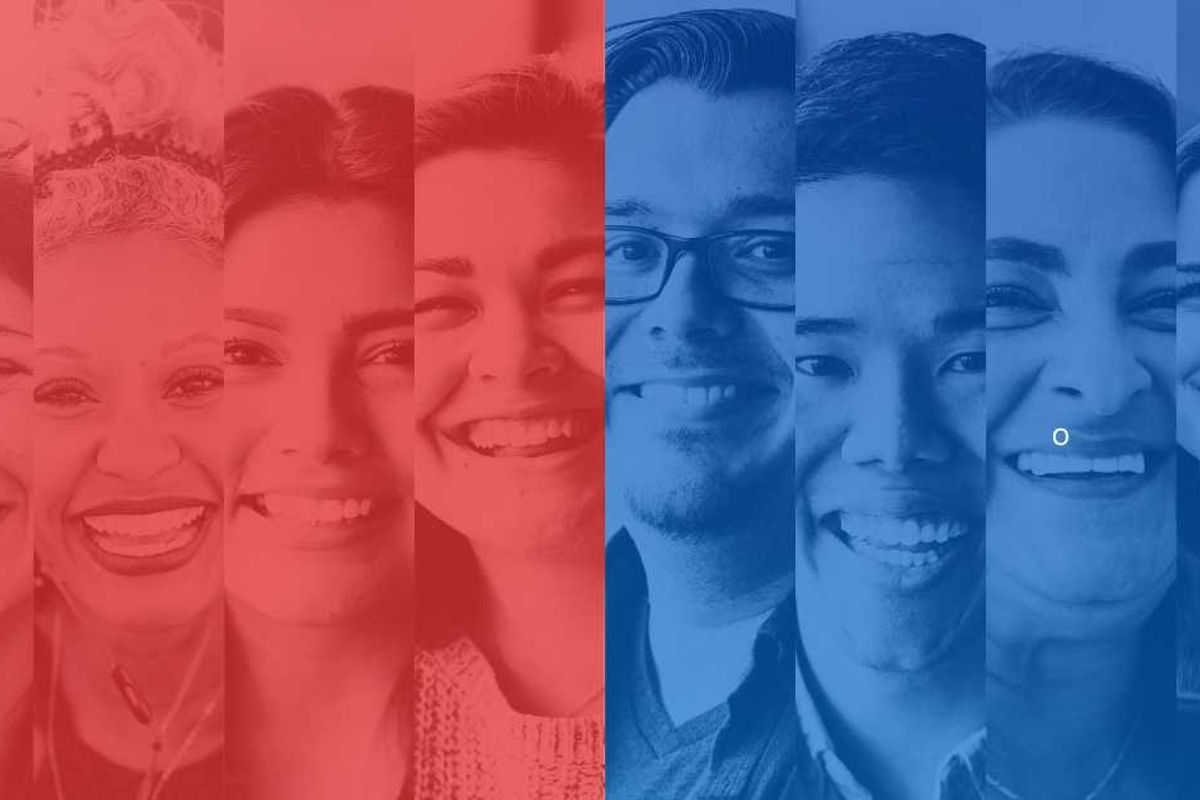Man shares issues and policies conservatives and liberals agree on and it's giving hope
Maybe our elected representatives should work on implementing these things.
Perhaps we're not as hopelessly divided as people think.
If you were to ask the average American in 2025 whether the United States felt more united or divided, there's no question the vast majority would say divided. That doesn't mean that we should be or want to be, but the sense of polarization and division is palpable, the partisan divide feels insurmountable, and many Americans are struggling to find hope in reaching common ground.
But in reality, there is a lot more common ground than we might think. Yes, there are real and important issues that people disagree vehemently on, and those can't be ignored. But there are some things we actually do agree on that we don't hear much about.
With videos that share some of the top issues and policies both conservative and liberals agree on, a TikToke account that goes by Common Ground (commonground___) has people thinking about the places we already are united.
@commonground___ United we stand.🤝 #politics #debate #congress
The Common Ground HQ website lists eight key things Americans widely agree on with a brief description of what they mean:
1. Ban Congress from Trading Stocks
Members of Congress shouldn’t be allowed to profit from the laws they write—it’s time to restore trust and end insider trading in government.
2. Single-Issue Bills for Transparency
Each bill should focus on one topic so every law is clear, transparent, and accountable to the American people.
3. Term Limits
Fresh leadership keeps our democracy healthy—it’s time to limit career politicians and make room for new voices and ideas.
4. Healthy Food and Consumer Protection
Every American deserves access to food free from harmful chemicals and additives that put profits over public health.
@commonground___ What do we think? 👀👇 #politics #debate #purplerevolution #generalstrike2025
5. Ban Corporate Homeownership
Billion dollar corporations and hedge funds shouldn’t outbid families for single-family homes—housing should be for people, not profit.
6. End Corporate Welfare
Stop billion-dollar companies from using taxpayer-funded programs to cover low wages.
7. Close Billion-Dollar Tax Loopholes
We need a tax system that works for working people—not one written by and for the ultra-wealthy.
8. Limit Corporate Lobbying
Money shouldn’t speak louder than voters—it’s time to break the grip of corporate lobbying on American democracy.
@commonground___ Who runs the media? 👀 #politics #debate #news #unitedwestand
If most Americans want these things, we have to ask ourselves why our elected representatives aren't focused on making them happen. After all, isn't it the role of our elected officials to listen to the voice of the people and create laws that reflect the consensus of the American citizenry? Who does the partisan divide serve, really?
"We’re not here to tear down—we’re here to rebuild," the Common Ground HQ website states. "To replace outrage with understanding, and division with decency. To bring accountability back to government, fairness back to our economy, and humanity back to our conversations." The idea is to band together on these specific issues that we're united on and recognize that we are stronger when we focus on our commonalities.

People appear to be on board with this "united we stand" approach to focusing on issues we generally agree on and want our politicians to do something about. Here's what commenters are saying:
"Honestly, I think the left and right agree on MOST things big picture, we just think differently on how to achieve those end goals ❤️and that's ok. If we collaborated more than fought we'd have so many things accomplished!"
"I love this because we really want so many of the same things and it’s so masked."
"Good job dude. We are more alike than we are led to believe."
"Honestly, as a very black pilled pessimistic Independent.. this gives me so much hope. I love what you’re doing here."
Governing hundreds of millions of people with different needs, perspectives, and life circumstances is certainly no simple task. There's always going to be disagreements and debates over issues and policies. But what if we started focusing more on the things we agree on that aren't happening than the things we disagree on? It might be worth considering.
You can follow Common Ground on TikTok and visit the HQ website for more info.

